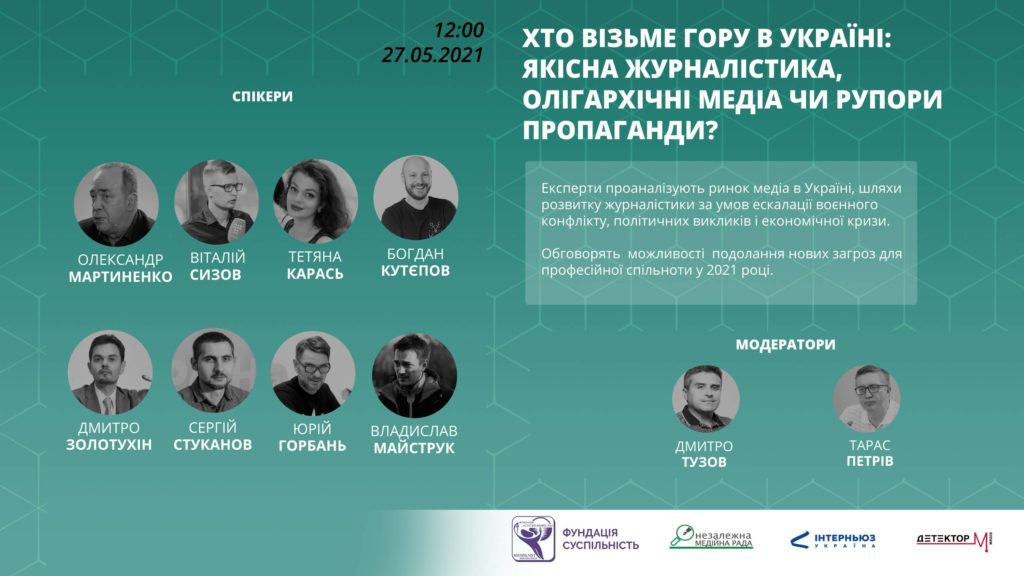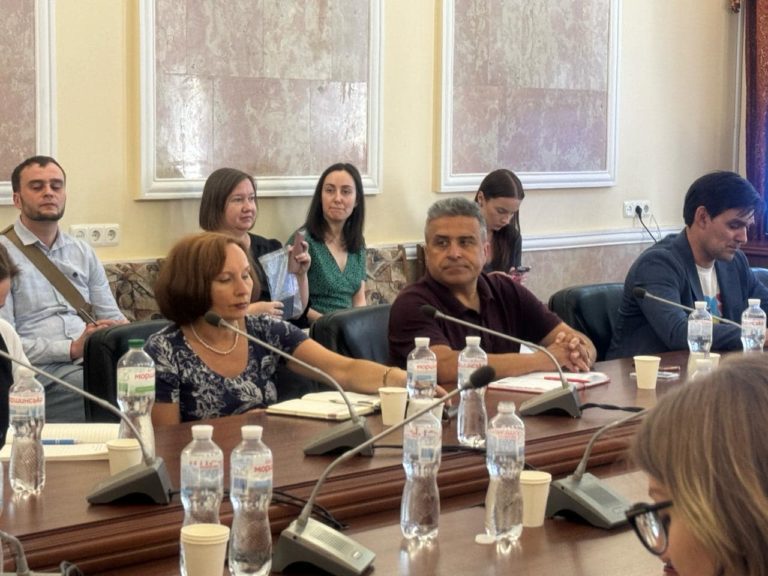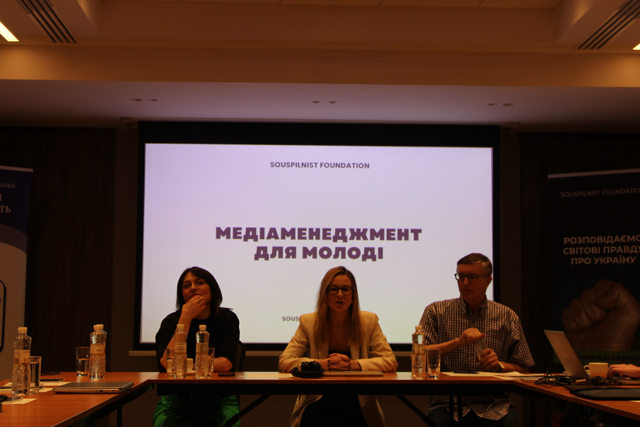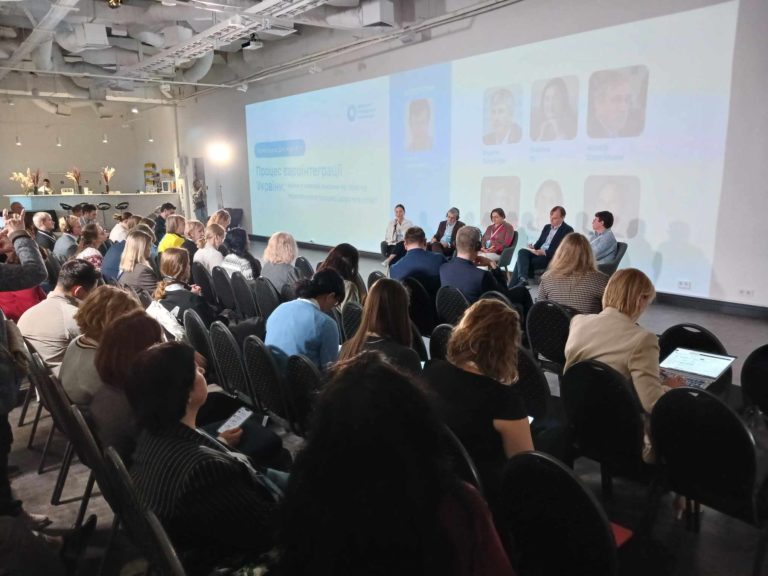Who will get the upper hand in Ukraine: quality journalism, oligarchic media or propaganda mouthpieces? On May 27, media experts met online to analyze the media market in Ukraine, ways to develop journalism in a situation of an escalation of military conflict, political challenges and the economic crisis, as well as to discuss the possibilities for the professional community to overcome new threats in 2021.
The expert discussion was hosted by Souspilnist Foundation with the support of Internews Ukraine, Detector Media and the Independent Media Council.
The speakers were Oleksandr Martynenko, CEO of Interfax Ukraine, Vitaliy Syzov, editor for social and political projects at the Dom channel, Tetiana Karas, deputy head of the Center for Strategic Communications and information Security, Dmytro Zolotukhin, founder of the Institute of Post-Information Society and expert on information warfare and competitive intelligence, Serhiy Stukanov, host at Ukrainian Radio, Yuriy Horban, expert at the Ilko Kucheriv Democratic Initiatives Foundation and former editor-in-chief STB Vikna, Vladyslav Maistruk, journalist at Channel 4, and Bohdan Kutiepov, journalist at Hromadske TV.
The moderators were Dmytro Tuzov, NV Radio host, and Taras Petriv, president of Souspilnist Foundation.
The experts agreed that the development of quality journalism today is required by society, but it is important to take into account existing problems: the popularity of oligarchic media, a lack of consumer awareness, and a lack of self-regulation in the media.
Oleksandr Martynenko noted that the state of Ukrainian journalism at the beginning of [the country’s] independence and today should not be compared because the world is changing, and the media sphere is changing along with it.
“However, the problems and media market characteristics haven’t changed – at least in the sense that money defined a lot back then and defines a lot now. The only thing is that it was a sharper state machine back then,” added the expert.
Law on oligarchs and the sale of Ukrayinska Pravda
During the discussion, two important news in the media sphere came up for discussion.
First of all, the participants talked about drafting the bill on oligarchs. In particular, oligarchs are prohibited from owning channels that broadcast political information. The draft law also provides safeguards for situations when oligarchs turn their business over to a proxy.
“Technically, there was an order for developing this bill, no doubt about that. The order is that TV channels that, in one way or another, broadcast political information shouldn’t belong to oligarchs. It’s hard for me to tell how realistic this idea is. If the law is somehow passed, it’ll radically change our entire television sphere,” said Oleksandr Martynenko.
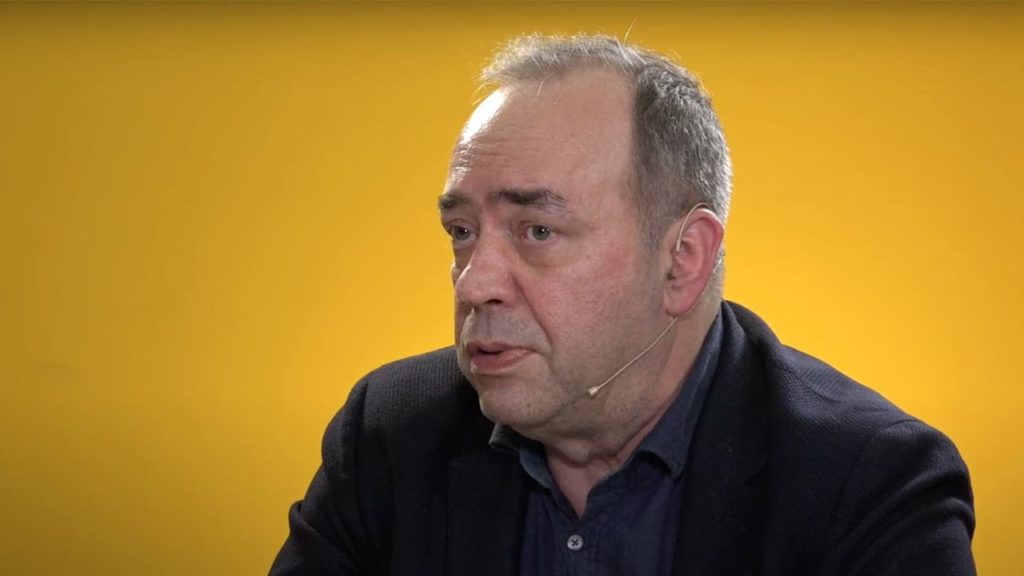
Oleksandr Martynenko
Given the bill’s provisions, the new owner of Ukrayinska Pravda, Tomáš Fiala, can get on the list of oligarchs, who is also the owner of NV and conveys the idea of developing independent media (specifically, the parties agreed that the media’s editorial policy and approaches to work will remain the same).
What is going to happen after passing the final version of the Law is still difficult to predict. But the experts are convinced that the sale of Ukrayinska Pravda is a unique case, not indicative of a general tendency of rapid change in the field of quality media in Ukraine.
“Ukrainian Pravda is a unique media, and, unfortunately, this precedent cannot be taken as an example,” said Bohdan Kutiepov.
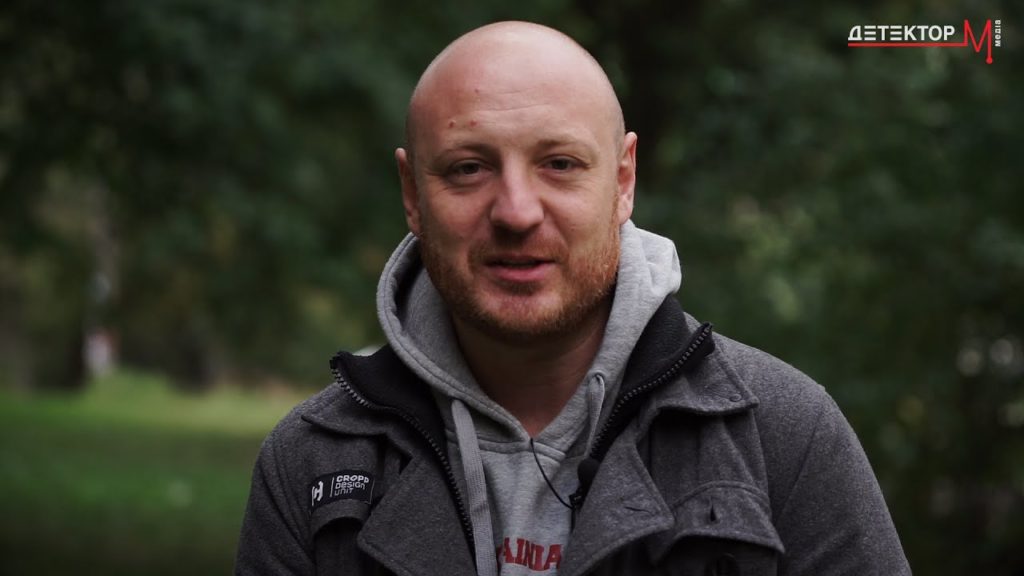
Bohdan Kutiepov
Pressing issues
Vladyslav Maistruk outlined three major issues of developing quality media in Ukraine:
- Should the media necessarily be profitable?
- If information is just as important a product as water (“because if the water is of poor quality, people die; if information is of poor quality, people also die”)? Is the state entitled to check its quality?
- Are those in the media able to create an association that will not only have a name, but also specific powers prescribed by law? Is the Ukrainian media market ready for this?
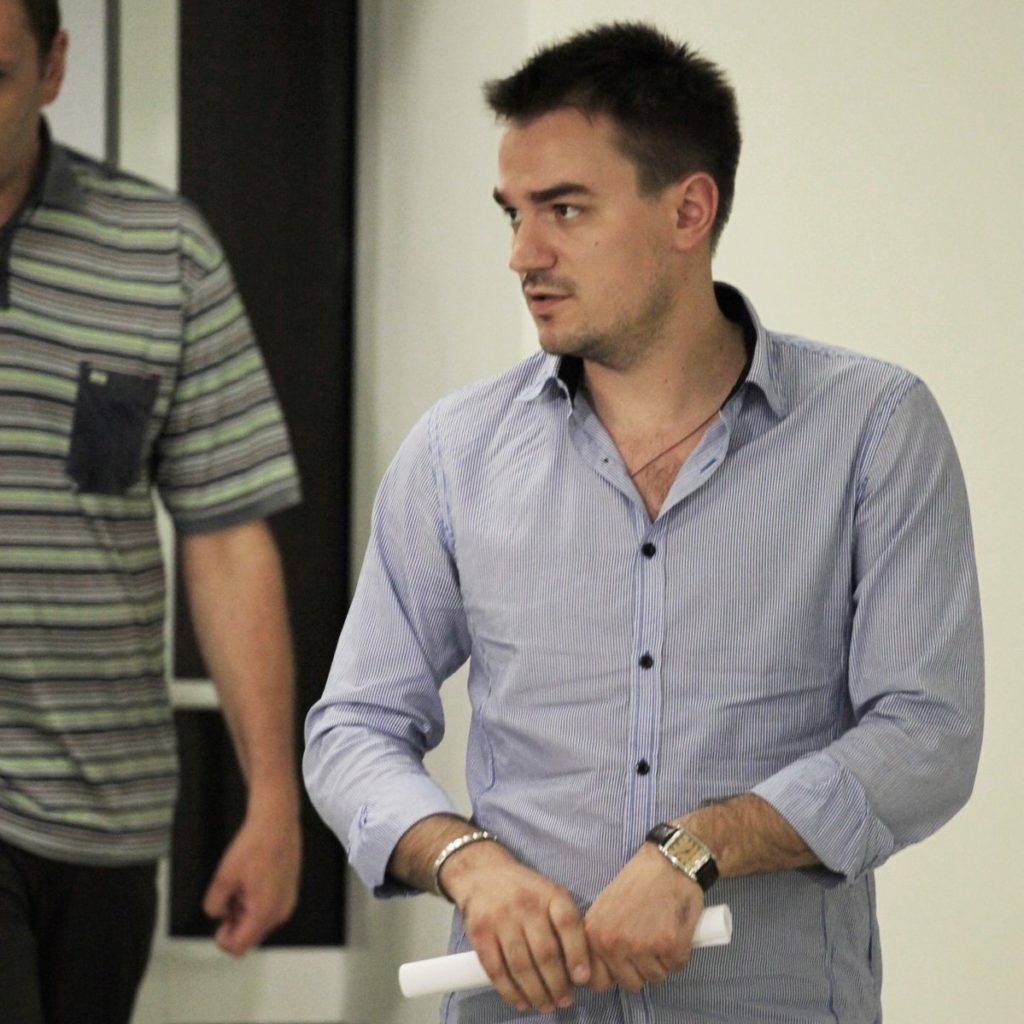
Vladyslav Maistruk
“My thinking is that the media don’t have to be profitable. …In fact, the media is partly like a football club, it’s a matter of prestige, and there can also be a social mission component. As for whether the state can check the media, there’ll never be a simple answer. On the one hand, we, as journalists, question the status quo while the state very often upholds it.”
As for point three, Dmytro Tuzov noted that the issue of self-regulation is now really important, in particular, for the media to take part in the development of laws that in some way relate to this sphere.
Tetiana Karas pointed to another important area – developing independent media in public broadcasting and promoting them among the population. Vitaliy Syzov also noted that it is important for UA:PBC to receive full funding.
“It’s currently difficult for the Public Broadcaster to compete in the same weight category with huge oligarchic media, especially TV channels. And I don’t think that overcoming this situation is a month’ work or even a year’s,” said Serhiy Stukanov.
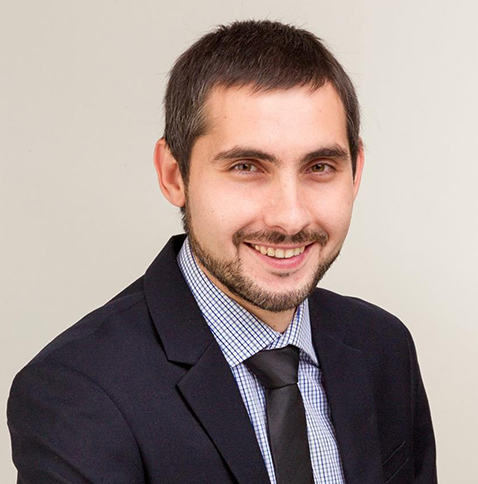
Serhiy Stukanov
Oleksandr Martynenko expressed an opinion that both propaganda and quality media in Ukraine will coexist. At least because they have a completely different audience: quality media are focused on an audience that has critical thinking. However, the vast majority of consumers are now satisfied with simple answers to complex questions. According to the expert, it is now important to increase the number of people willing to have critical thinking.
And that is another urgent task for the Ukrainian media market.
“Of course, high-quality media will get the upper hand, and our task is to have non-oligarchic, independent quality media. We just have to go beyond our ideas of creating honest journalism. Honest and independent journalism shouldn’t be boring. Analytical materials shouldn’t be only for the chosen ones,” said Kutiepov.
Watch the full discussion here:
Follow the news on Souspilnist Foundation’s website and Facebook page to learn about the new events for media professionals.
Photos: skrypin.ua, Detector Media, Facebook-pages, Ukrayinska Pravda.
.
